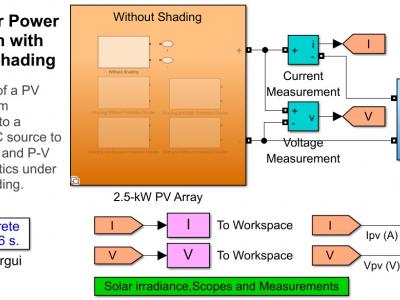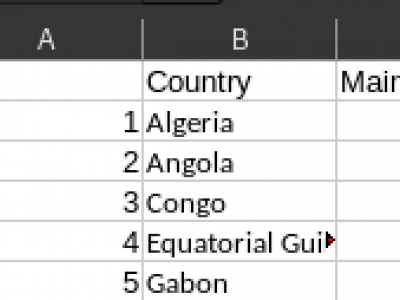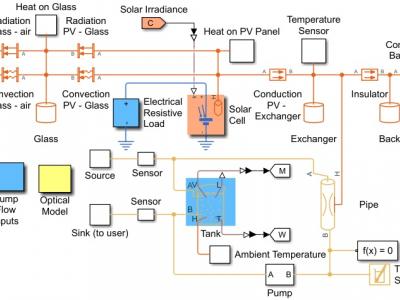Energy

A dataset characterizing the parameters of a stepped piezoelectric cantilever beam using various geometric specifications is introduced. The dataset also shows the electric potential generated at each layer when exposed to a specific excitation frequency. The primary application of the cantilever is in ambient vibration energy harvesting, where the piezoelectric cantilever beam plays a crucial role in converting mechanical vibrations into electrical energy.
- Categories:
 293 Views
293 Views
The luminescent coupling effect in practical multi-junction solar cell is spatially in-homogeneous even under uniform irradiation and temperature distribution. The spacial inhomogeneity of luminescent coupling is modeled and simulated under various scenarios. Quasi 3-D equivalent model of tandem solar cell is extended to adapt to temperature dependent luminescent coupling. Vertical current of each region of the cell is dominated by temperature or irradiation.
- Categories:
 67 Views
67 ViewsThe Partial Discharge - Localisation Dataset, abbreviated: PD-Loc Dataset is an extensive collection of acoustic data specifically curated for the advancement of Partial Discharge (PD) localisation techniques within electrical machinery. Developed using a precision-engineered 32-sensor acoustic array, this dataset encompasses a wide array of signals, including chirps, white Gaussian noise, and PD signals.
- Categories:
 1072 Views
1072 ViewsDatabase of the times the device remained in each state (idle, low power mode, transmitting and listening, respectively), number of hops, hop distance (d), transmission rate (_R) and size of the packet sent (_Nb), measured on the Tmote Sky device using an Aloha Puro protocol with RDC implemented in the Contiki operating system.
- Categories:
 232 Views
232 ViewsQuantification and analysis of global oil trade networks reveals deep insights into a nation's development and influence at a global scale. Further, it allows us to predict future trends and changes to adapt state policy as the crude oil market influences the balance of power among the developed and emerging economies alike as it is central for energy needs as well for industrial progress.
- Categories:
 415 Views
415 ViewsThis dataset holds the Simulink model and the main output results during a day of a PV/T Hybrid Solar Panel from the Department of Power Engineering and Computer Science, Faculty of Engineering, “Vasile Alecsandri” University of Bacau. The obtained results including electrical and thermal efficiency are compared with the performances of a real PV/T System.
The dataset is related to the data used in an article under review sent to the Machines – an Open Access Journal from MDPI (Q2, IF=2.6).
- Categories:
 458 Views
458 ViewsThe dataset includes on-state saturation voltage information for eight samples under four different test conditions. Each Excel file consists of two data columns: one for cycle numbers and the other for on-state saturation voltage. Although these data were collected during the power cycling test at the maximum junction temperature, the effect of temperature increase in the on-state voltage has been compensated. Namely, the provided on-state voltage has been unified to the corresponding to the respective 125°C or 150°C.
- Categories:
 720 Views
720 Views
Dataset in "Multiple-condition fusion network for characterizing complex subsurface structures based on sparse measurements and auxiliary variable". The data set includes two-dimensional experimental case data and three-dimensional experimental case data. All data used in this study are available at Github repository (https://github.com/GS-3DMG/mcf-net-data) and have been published on Zenodo (https://doi.org/10.5281/zenodo.8260600).
- Categories:
 100 Views
100 ViewsHeating in a building involves generating and distributing heat to maintain a comfortable indoor temperature. Here's an overview of how heating works in a building:
1. **Heat Generation**:
- A heat source, such as a boiler, furnace, or electric heating element, produces heat energy. This source is typically fueled by natural gas, oil, electricity, or another energy source.
2. **Heat Transfer**:
- Categories:
 209 Views
209 Views





